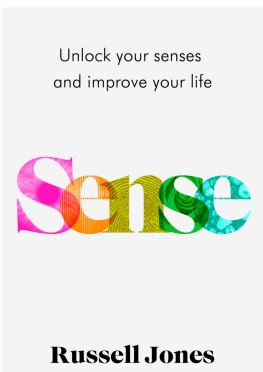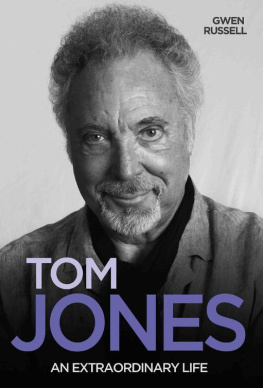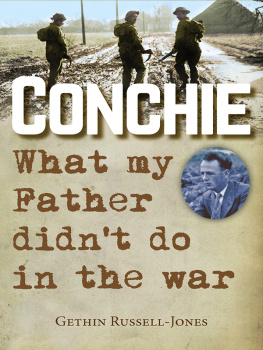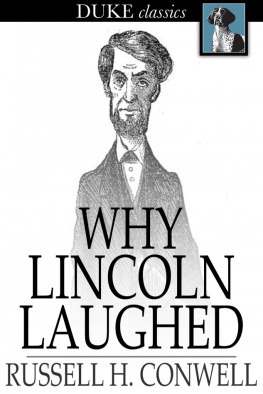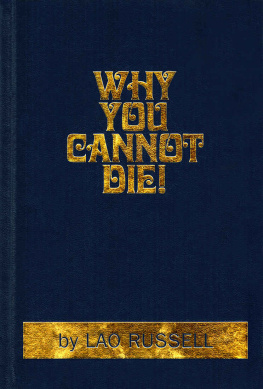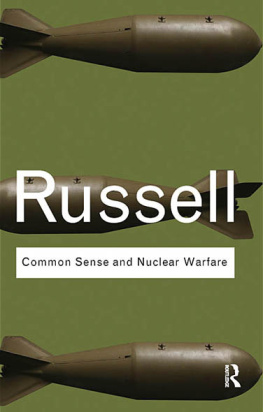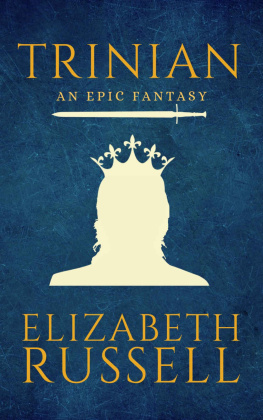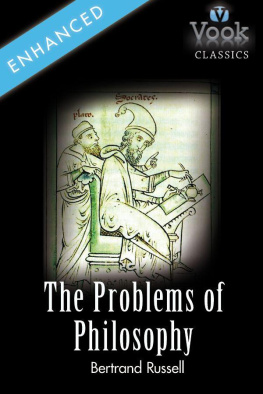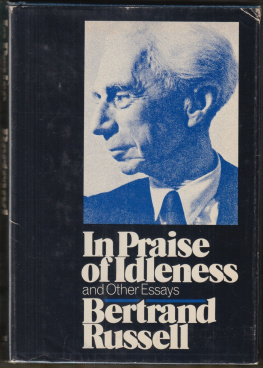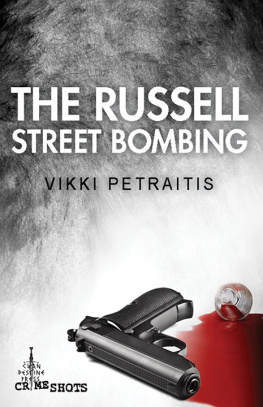Russell Jones - Sense.
Here you can read online Russell Jones - Sense. full text of the book (entire story) in english for free. Download pdf and epub, get meaning, cover and reviews about this ebook. year: 2020, publisher: Murdoch Books, genre: Romance novel. Description of the work, (preface) as well as reviews are available. Best literature library LitArk.com created for fans of good reading and offers a wide selection of genres:
Romance novel
Science fiction
Adventure
Detective
Science
History
Home and family
Prose
Art
Politics
Computer
Non-fiction
Religion
Business
Children
Humor
Choose a favorite category and find really read worthwhile books. Enjoy immersion in the world of imagination, feel the emotions of the characters or learn something new for yourself, make an fascinating discovery.
- Book:Sense.
- Author:
- Publisher:Murdoch Books
- Genre:
- Year:2020
- Rating:4 / 5
- Favourites:Add to favourites
- Your mark:
- 80
- 1
- 2
- 3
- 4
- 5
Sense.: summary, description and annotation
We offer to read an annotation, description, summary or preface (depends on what the author of the book "Sense." wrote himself). If you haven't found the necessary information about the book — write in the comments, we will try to find it.
Sense. — read online for free the complete book (whole text) full work
Below is the text of the book, divided by pages. System saving the place of the last page read, allows you to conveniently read the book "Sense." online for free, without having to search again every time where you left off. Put a bookmark, and you can go to the page where you finished reading at any time.
Font size:
Interval:
Bookmark:
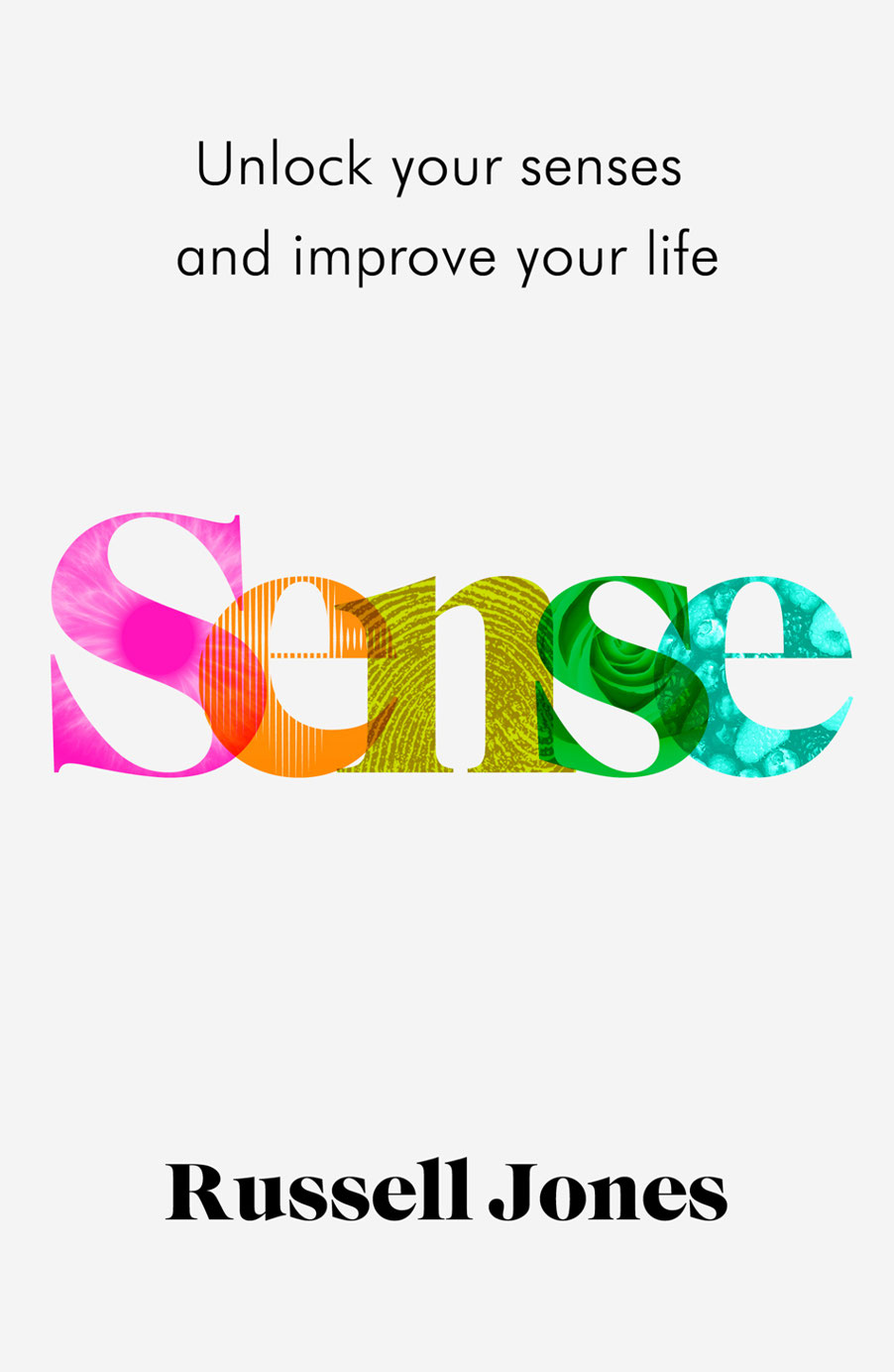
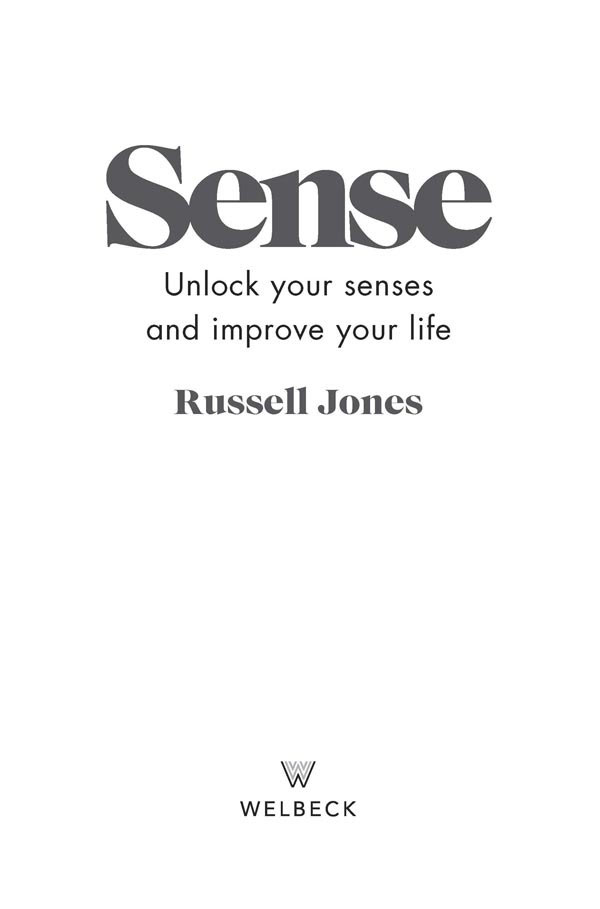
For Linus
Imagine yourself on holiday in the South of France. Youre sitting on the terrace of an old aubergethat you have happened by for lunch, eating steak frites. Rolling fields of lavender disappear off into the distance. Around you the gentle murmur of French voices and the clinking of cutlery and wine glasses creates a calm and distinctly Mediterranean backdrop to this picture-perfect scene. The sun is warm; you feel relaxed and at ease. A waiter brings out an earthenware carafe of beautifully chilled ros. Its delicious; pale rose gold; the perfect accompaniment to the moment, the location and the vista. You ask him where this wonderful drop is from, and he tells you that its from a vineyard just down the road. You stop there on your way back to the villa, and to your amazement the wine only costs two euros a bottle. You buy tons of it and drink it happily all holiday and of course, you also bring a case back home with you.
Now its February. Youre drowning once more in the daily grind and drudgery of life. Outside, the relentless darkness and freezing rain have been driving you to despair now for some weeks. Work is getting you down again as usual. However, tonight is a treat as you have invited some old friends over for dinner. Talk turns to your wonderful holiday in Provence the previous summer and you tell tale of the beautiful local ros you found. Only two euros a bottle! And delicious; you have some in the fridge. Your guests emit pleasing moans of expectation, commenting on the wonderful colour as you pour them a glass.
You sip; its disgusting, vinegary and acidic. Truly cheap plonk. Its gone bad! you exclaim. Such a shame it must have got ruined in the back of the car on the drive home, bouncing up and down on those French country roads; and in the heat too. But no, you have fallen prey to the Provenal ros paradox. The wine is the same as it always was; what has changed is everything else. Youre no longer feeling relaxed, basking in the warm glow of the afternoon Provenal sun. Youre not surrounded by the sounds, smells and colours that helped create the experience where you formed that wonderful memory; it was the environment and your emotional state that conspired to alter your perception and make the wine taste so good.
But all is not lost we can bring the taste back by setting up a sensory scene that is evocative of that moment. Maybe you could light a lavender-scented candle for the distant aroma. Decant the wine into an earthenware carafe. Lay the table with a red and white chequered tablecloth. Put on some Edith Piaf records or the hubbub of French chatter. Recreate the sensory environment, recall the memories and evoke the same emotions, and the wine will be pleasing on the palate once more. Perhaps not quite as thirst-quenchingly, soul-inspiringly delicious as it was at that auberge in France, but much better than the plonk that youre tasting now.
For the last ten years or so, Ive been telling that story as an introduction in boardroom presentations, as a way of illustrating how our perception is influenced by everything around us. To show that our senses and emotions cross over, affecting our experience of the world. That one sense, which we believe works completely on its own and is always telling you the truth in this case taste is in actual fact the product of multiple triggers and stimuli were picking up through every other sense at the same time; and coloured further by our emotional state. We are multisensory beings, but we tend to exist and think one sense at a time. This is not how it works.
Research from the worlds of neuroscience, experimental psychology and behavioural psychology has uncovered the amazing extent to which our behaviour and perception are affected by what seem like arbitrary factors in our environment. Like the fact that coffee tastes sweeter if you drink it from a red and rounded mug. Or that we perceive time to pass by more quickly when we are in a blue room with slow music playing. Smells that remind us of the past encourage us to seek out new ideas. We buy more indulgent products when were cold. Food tastes 11 per cent more delicious when its eaten using heavy cutlery. And white wine tastes 15 per cent more zingy if you listen to Blondie while drinking it. Ive been applying this area of sensory study in my work for a while now discovering neuroscientific insights into how our senses and emotions interact, and using them to design better products, brands, spaces and experiences, in a scientifically proven way.
Heres a good example: my agency was approached by a global ice cream brand who wanted to claim that their cone possessed the quintessential crunch. It was our job to define the key components that deliver the sensation and provide their development team with direction. The process we go through is similar, regardless of the project: first we conduct a literature review, looking at existing research that might give us guidance on where to go. It turned out that a scientist called Zata Vickers thoroughly investigated crunchiness between the late 1970s and the early 1990s. Her research argues that it is almost entirely down to what you hear if something doesnt sound crunchy, it isnt crunchy. She and her team also suggested that the ultimate crunch is within a range of sonic pitch, above which a sound becomes crispy. Based on this, we started to test some ideas. We recorded biting into the clients cone and made versions of the sound at different pitches. We then ran an online study in which we asked people to listen to the sounds and judge how crunchy they thought the cones were, and how much they liked the idea of eating one. The clients current cone was too high-pitched and decidedly crispy; a slightly lower-pitched version was judged to be the crunchiest of all, and that was the one that people most fancied eating. We had pinpointed the ultimate crunch. Next we visited Professor Barry Smith, director of University of Londons Centre for the Study of the Senses, and set up an experiment. We had people eating ice creams in front of microphones, with the sound being fed through a computer and back to headphones that our participants were wearing. We were able to control what they heard as they ate the ice creams in real time. When we made the sound high-pitched, the cones tasted light and crispy. By muffling the sound, we could make them seem stale. And by pushing the sound into the ultimate crunch range, the cones tasted crunchy and were more enjoyable to eat. The ice cream itself also tasted richer and creamier, due to what is called a halo effect; when one sense is pleased, the others often follow suit.
With these results, we had a brief for a new cone. The development scientists went back to the lab and created one that made the exact sound when bitten into. Armed with this new product, we ran consumer testing again; people said it was crunchier, creamier and better quality, and judged that they would pay 20p more for it. The only thing that had changed was the sound made when the cone was bitten.
My approach considers the entire sensory experience of buying and eating a product, so we didnt stop there. We looked at the language used when describing it in adverts and on the packaging: how the words used can prime expectations of how the product will taste sharp and staccato sounds cut to the crunch, while creamy words flow slowly and smooth. We explored different textures on the packaging to make it feel and sound crunchy as you tear it open, making you expect the ultimate crunch even before you tuck in. We looked at the action of unwrapping the product could the movements you make enhance the taste in some way? A swirling motion would feel creamy, while the sound would be crunchy. We also created a crunchy sonic mnemonic (the sound that accompanies the logo and product shot at the end of an advert) and selected music that contained crunchy guitars and a staccato rhythm. In this way, from the moment of seeing and hearing the advert, picking up and unwrapping the product, a consumer would be led on a sensory journey that would build expectation and finally deliver a crunchy experience from the first bite.
Next pageFont size:
Interval:
Bookmark:
Similar books «Sense.»
Look at similar books to Sense.. We have selected literature similar in name and meaning in the hope of providing readers with more options to find new, interesting, not yet read works.
Discussion, reviews of the book Sense. and just readers' own opinions. Leave your comments, write what you think about the work, its meaning or the main characters. Specify what exactly you liked and what you didn't like, and why you think so.

